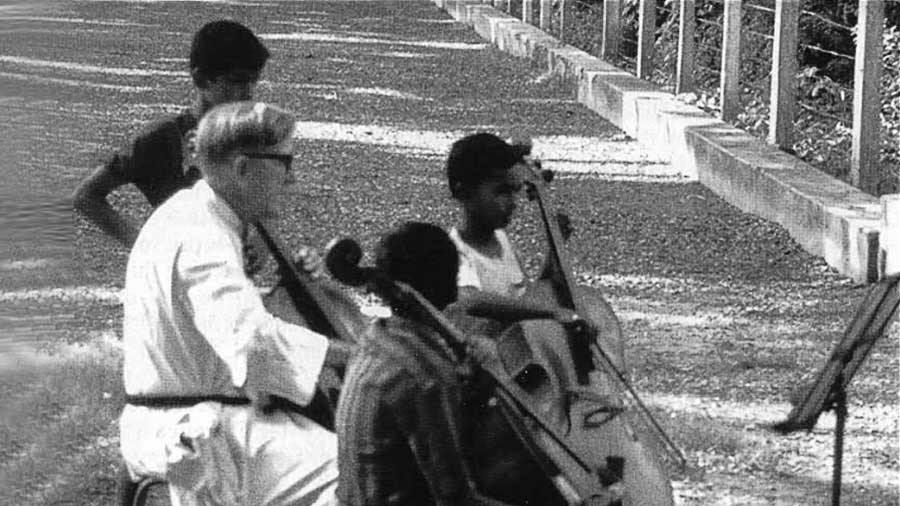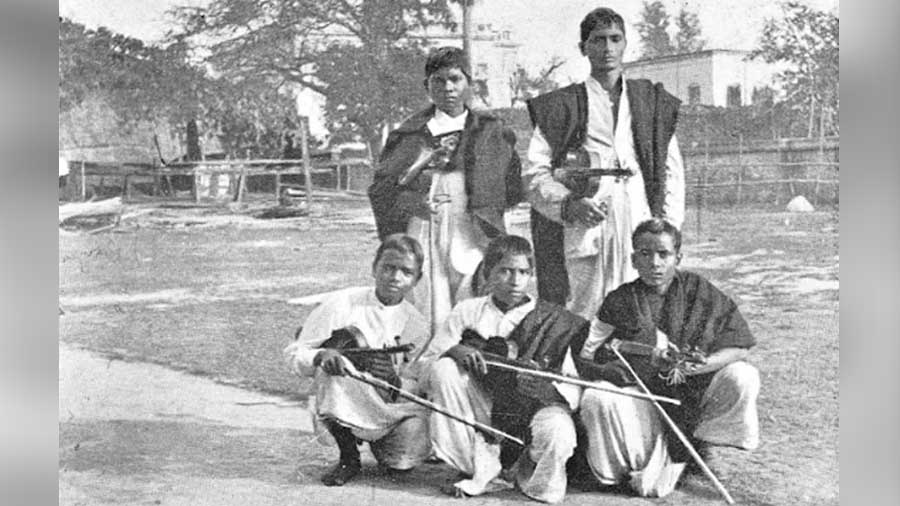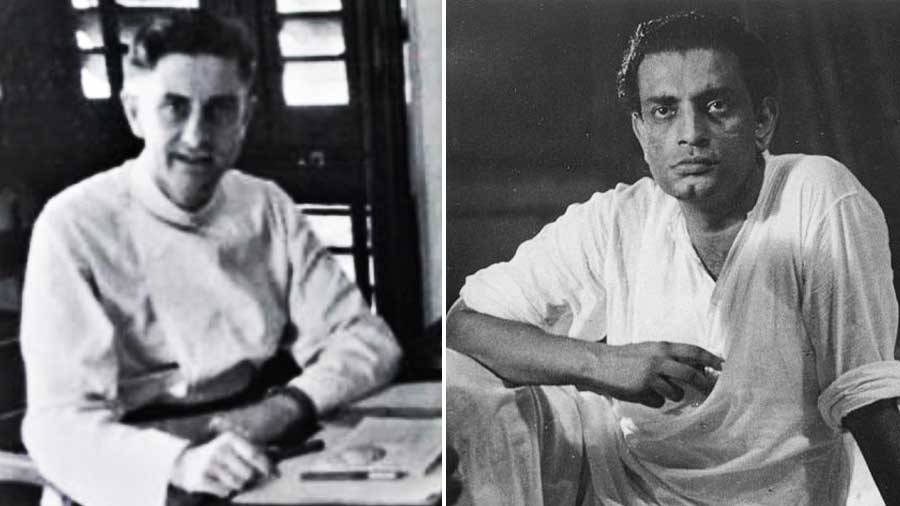A letter sent in 1992 by an English priest from Behala in Kolkata to his family back in England ends with an anecdote: “...I listened to a tape made by our most famous Film Director – Satyajit Ray – who died recently, in which he said there is no difficulty in getting a supply of cellists in Calcutta, because the Oxford Mission produces plenty!”
The priest, Father Theodore Mathieson (1913 – 1994), was born in Chingford, Essex, and made his way to India in 1946 to serve under the Oxford Mission — an organisation formed in 1880 as the Oxford Mission to Calcutta in response to an appeal made by Bishop Johnson of Calcutta to the University of Oxford requesting young men to go out to India and engage in missionary work.
Missionary work alone – which included looking after the education and well-being of orphaned boys, acting as chaplain to leprosy dispensaries, and pastoral work in Christian villages among other things – would have been enough to earn Father Mathieson a place in Kolkata’s chequered history, but the part of his life’s work that has continued to create ripples long after his death is his contribution to the spread of western classical music in the city.
Continuing the musical work begun in 1924 by the Reverend Frederick Wingfield Douglass who arrived from Christ College, Oxford in 1892 to serve the Anglican Brotherhood of the Epiphany under which the Mission operated, Father Mathieson's musical tutelage — he was an accomplished cellist himself — produced generations of students who would go on to pursue successful musical careers both in India and internationally.

Father Mathieson with his pupils From the Oxford Mission's website
Anup Biswas, UK-based cellist and composer who now runs the Mathieson Music School for underprivileged children, the late Ananta Makhal who was a legendary violin pedagogue in Calcutta, Abraham Mazumder, founder member of one of the earliest Indian-language rock bands Mohiner Ghoraguli and principal of the Abraham Mazumder Academy of Music — these are just some of the many names associated with Father Mathieson and his teaching at the Oxford Mission.
But more than these names which are familiar to the listening public, Father Mathieson's contribution to Kolkata's music history must be sought in the effect his presence had on the lives of countless young orphans and children with single parents who came under his care at the Oxford Mission in Behala.
The practice of reading, interpreting and performing works by Mozart, Beethoven, Bartok and Haydn — usually the province of the educated elite in the west — in Father Mathieson's hands became an avenue for children from disadvantaged backgrounds to distinguish themselves in an arena which would otherwise certainly not have welcomed them.
In the heyday of western classical music in Calcutta, Father Mathieson and his boys could be found everywhere where music was being played; from the Calcutta Chamber Orchestra which performed under the baton of Hans-Jürgen Nagel, to the Navy Band who regularly recruited from his carefully nurtured talent pool, the Calcutta Symphony Orchestra, the Calcutta Youth Orchestra, to the background scores of films directed by Satyajit Ray.

Pupils of the Oxford Mission violin class From 'A History of the Oxford Mission to Calcutta' by George Longridge
In 1981, Ray was so impressed with a private recital given at the house of Adi Gazder where Anup Biswas was playing the cello, that he bought tickets for all the students of Oxford Mission to come view his latest film, which was playing in theatres at the time.
Father Mathieson’s death in 1994, closely followed by the death of the last English priest of the Mission, led to the lapse of the Brotherhood of the Epiphany in India, and administrative duties of the Oxford Mission, Behala fell to the Church of North India.
The Father’s legacy, however, is far from forgotten and his “boys” are still making music, creating a new generation of musicians who trace their lineage to the Christian priest who made India his home and serving its poor his dharma.
